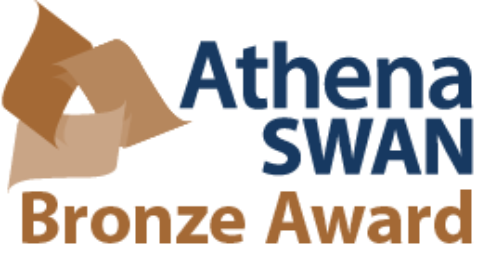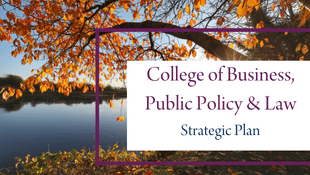-
Courses

Courses
Choosing a course is one of the most important decisions you'll ever make! View our courses and see what our students and lecturers have to say about the courses you are interested in at the links below.
-
University Life

University Life
Each year more than 4,000 choose University of Galway as their University of choice. Find out what life at University of Galway is all about here.
-
About University of Galway

About University of Galway
Since 1845, University of Galway has been sharing the highest quality teaching and research with Ireland and the world. Find out what makes our University so special – from our distinguished history to the latest news and campus developments.
-
Colleges & Schools

Colleges & Schools
University of Galway has earned international recognition as a research-led university with a commitment to top quality teaching across a range of key areas of expertise.
-
Research & Innovation

Research & Innovation
University of Galway’s vibrant research community take on some of the most pressing challenges of our times.
-
Business & Industry

Guiding Breakthrough Research at University of Galway
We explore and facilitate commercial opportunities for the research community at University of Galway, as well as facilitating industry partnership.
-
Alumni & Friends

Alumni & Friends
There are 128,000 University of Galway alumni worldwide. Stay connected to your alumni community! Join our social networks and update your details online.
-
Community Engagement

Community Engagement
At University of Galway, we believe that the best learning takes place when you apply what you learn in a real world context. That's why many of our courses include work placements or community projects.
News
Decolonising The Legal Curriculum
For many years, the question of decolonising the legal curriculum has been at the forefront of pedagogical debates around the world (Adebisi 2020, 2024, Kok and Oelofse 2020). In some parts of the legal discipline, these debates have persisted for over thirty years (for instance, ‘Law and Development’ and ‘Third World Approaches to International Law’). Decolonising the legal curriculum is particularly important because law was a penetrating tool of colonisation. Existing socio-legal forms and structures often bear the imprint of colonial relations, and these have ongoing deleterious effects. The colonial imprint reproduces old forms and produces new modes of exclusion, marginalisation and eurocentrism. And it does so in ways that are invisibilised through law’s appeal to an abstract (deracinated) rationality. The project therefore seeks to think through the ways in which the legal curriculum might be made more inclusive, helping students to understand ongoing structures of exclusion and marginalisation, and building new relations of solidarity.
In Ireland there have been a number of really important interventions, with modules in Galway, Maynooth, Dublin, Belfast and Cork being redesigned and reconceptualised. But in the main, these projects have remained somewhat isolated from one another. This workshop brought together colleagues working on decolonising the curriculum, in order to think about cross-institutional organisation and a network based support.
Key Questions
The workshop explored a number of key questions around the meaning of decolonisation in the Irish legal curriculum. In particular focusing on:
- Different epistemic traditions and the lived experiences of law from domestic marginalised populations (particularly thinking about Travellers, migrants, women, the working classes, the rural poor, etc.).
- Marginalised and peripheralized knowledges and people, focusing internationally. Epistemic violences, eurocentrism and the challenge of ‘othered’ (non-western) perspectives.
- The Irish experience of anti-colonial struggle, and the dangers of orienting ‘Irishness’ around the trifecta of gendered nationalisms, whiteness, and settled status.
- Epistemic justice, indigenous knowledges, other ways of knowing the law, and how they might be brought into Irish legal analyses.
- Addressing geographical and personal positionality when teaching law.
The workshop brought in colleagues from all over the island of Ireland (Ciara Smyth, Gift Sotonye-Frank, John Reynolds, Fiona Donson, Rónán Kennedy, Anita Ferrara), the UK (Suhraiya Jivraj and Foluke Adebisi), where there has been an on-going engagement with coloniality, and from different academic disciplines in Galway (Su-Ming Khoo and Muireann Cinneide).
Resources and Network:
Starting Points for decolonising the legal curriculum
- Suhraiya Jivraj, ‘Towards Anti-Racist Legal Pedagogy: A Resource’ (note this has practice considerations for each of the ‘core’ law modules that will be very useful as a starting point).
- Foluke Adebisi Decolonisation and Legal Knowledge (Bristol University Press, 2024)
- Foluke Adebisi African Skies blog
- Suhraiya Jivraj, ‘We were never meant to survive’ Short video
- Decolonising SOAS, Toolkit for Convenors
- The Decolonial Critique listserv
International and Comparative Law
- Sundhya Pahuja, The MacDermott Lecture 2025 (recording).
- Ciara Smyth, Slides on Decolonising International Law.
- Third World Approaches to International Law Review (particularly worth exploring the TWAILR extra Mixtapes and other exciting alternative pedagogic and research tools published on the TWAIL Review)
- Sundhya Pahuja, Decolonising International Law (Cambridge University Press, 2011)
- Ntina Tzouvala, ‘Teaching International Law Against Racism and Empire’
- Lena Salaymeh and Ralf Michaels, ‘Decolonial Comparative Law: A Conceptual Beginning
European Union Law
- Orbie et al, ‘Decolonizing rather than decentring ‘Europe’ European Foreign Affairs Review
Land/Property Law:
- Amanda Kramer and Alice Panepinto, ‘Degrees of Coloniality: Rethinking Property Law in (Northern) Ireland
- Cristy Clark, Sarah Keenan & John Page, ‘Teaching Property critically in disparate parts of the former British Empire’.
- Brenna Bhandar, Colonial Lives of Property: Law, Land and Racial Regimes of Ownership (see also here)
- Laetitia Makombe, ‘A critical race feminist reading of south African property law’
Contract
- Chaumoil Huq, ‘Decolonising Objective Theory: Race and Coloniality in US Contract Law
- Fady Aoun, Louise Boon-Kuo, and Tanya Mitchell, Towards Decolonising the Ordinary Person Test in Legal Education
- Mairead Enright, ‘Contract Law and Empire’ in the Critical Legal Pocketbook
Public, Administrative and Constitutional Law
- Sindy Joyce et al, Irish Travellers Access to Justice (University of Limerick)
- Kate Ogg: Decolonising Civil Procedure: Court Process as Continuing Colonisation and Tool for Indigenous Justice
- Sahar Ahmed Divesting Religion from Rights: Teaching Freedom of Religion through Anti-Racist Pedagogy
Criminal Law/Criminology
- SOAS, What does it mean to decolonise criminal justice? (panel discussion)
- J M Moore, ‘Law, order, justice, crime: disrupting key concepts in criminology through the study of colonial history’
- Harry Blagg, Thalia Anthony, Decolonising Criminology: Imagining Justice in a Postcolonial World
Tort
- Fady Aoun, Louise Boon-Kuo, and Tanya Mitchell, Towards Decolonising the Ordinary Person Test in Legal Education
- P. McGrath, Reinventing Wrongs: A Subversive, Anti-Racist Pedagogy for Tort
Jurisprudence/Legal Theory
- Sophie Rigney, ‘Creating the Law School as a meeting place for epistemologies: Decolonising the Teaching of jurisprudence and human rights
Irish University Processes
- Queens College Belfast, ‘One Scéim at a Time’
- Trinity College Dublin, Decolonising the Curriculum
- University of Galway, forthcoming.
Interdisciplinary Resources
- Su-Ming Khoo, ‘Reparative Futures and Transformative Learning Spaces’
- Su-Ming Khoo ‘Decolonizing the social sciences’ Irish Journal of Sociology
- Decolonise Sociology (blog)
- Decolonial Higher Education (listserv)
General Law Sources
- University of Oxford, Decolonising the Law Discussion Group Reading List
- Wall, Middleton and Shah, Critical Legal Pocketbook ( Counterpress, 2021)
- Dave Thomas and Suhraiya Jivraj, Towards Decolonising the University: A Kaleidoscope For Empowered Action (Counterpress 2020)
- Donncha O’Connell, ‘Speaking Truth about Power to the Indifferent: The Enduring Argument for Idealism in Legal Education’ (Paper at University of Limerick)
Athena Swan Bronze Award

















